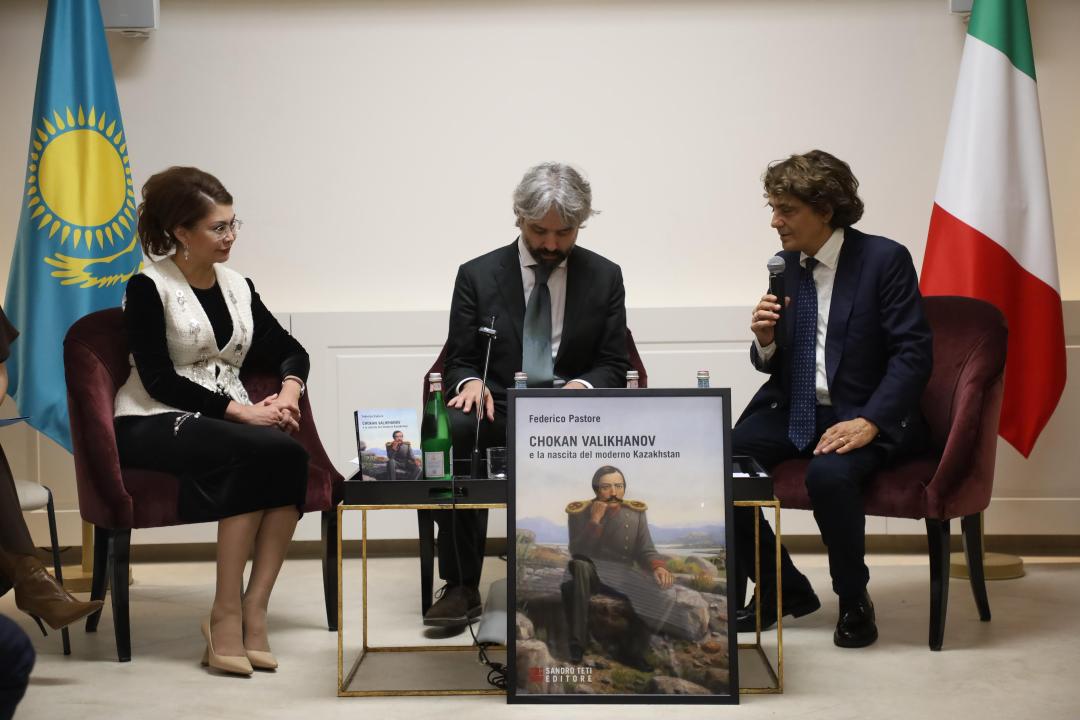
During the working visit of Aida Balayeva, Minister of Culture and Information of the Republic of Kazakhstan, to Rome, a presentation of the monograph “Shoqan Walikhanov and the Birth of Modern Kazakhstan” took place. The book, published in honour of the 190th anniversary of the prominent Kazakh scholar, has been released for the first time in Italian.
Aida Balayeva congratulated all contributors involved in the research and publication of this important work dedicated to the great scientist, educator, and traveler. The Minister emphasized that introducing Shoqan Walikhanov’s intellectual legacy to the Italian audience is an important step toward deepening the spiritual and cultural ties between Kazakhstan and Italy.
“Shoqan Walikhanov is not only an outstanding figure of the Great Steppe but also a personality of global significance. His research opened the eyes of the international academic community to the rich culture and civilization of the peoples and states of Central Asia, as well as to the spiritual heritage of the Kazakh nation. The publication of his works in Italian is a vivid example of how science and enlightenment bring nations closer together. This book will allow Italian readers to gain a deeper understanding of the history, culture, and spiritual world of the Kazakh people,”
— said Aida Balayeva.
The Minister expressed sincere gratitude to the specialists from both countries — researchers, translators, and ethnographers — who contributed to the creation of the book. She also expressed confidence that this event will serve as a stimulus for strengthening scientific cooperation between Kazakhstan and Italy and will inspire young scholars to new discoveries.
The biography of Shoqan Walikhanov was written by Professor Federico Pastore, an Italian academic who has spent many years studying Kazakhstani sources and archival materials about the life of the scholar. The monograph also includes a detailed section devoted to prominent Kazakh figures whom Walikhanov met during his lifetime.
The book was published with the support of the Embassy of the Republic of Kazakhstan in the Italian Republic by Sandro Teti Editore, funded by the Kazakhstani company JSC “Caspiy Neft” and the Doscar Foundation Charity Fund. The research is also available in English.
Press Service of the Ministry of Culture and Information of the Republic of Kazakhstan